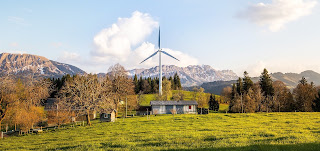Raul's journey to an off-grid lifestyle began with research and planning. He spent months researching the necessary equipment and infrastructure, such as solar panels, wind turbines, and a well, and learning the necessary skills, such as gardening and basic plumbing. Chile's unique geography and weather conditions offered unique challenges, but Raul was determined to make it happen.
One of the biggest benefits of off-grid living for Raul has been the ability to reduce his environmental impact. By generating his own power through solar panels and wind turbines, and managing his own waste, he is able to reduce his dependence on fossil fuels and landfills. Additionally, by growing his own food through gardening, he is able to reduce his dependence on commercial agriculture.
Another benefit of off-grid living for Raul has been the sense of empowerment and self-sufficiency it provides. "By learning to rely on my own resources and skills, I have become more self-reliant and less dependent on external systems," he says. "This has led to a greater sense of control over my life and a deeper connection to the natural world."
For Raul, off-grid living has been a fulfilling and rewarding experience. "It's not for everyone, but if you're willing to put in the work and make the necessary preparations, it can be a sustainable and fulfilling way of life," he says.
Raul's experience of off-grid living in Chile shows that it is possible to live sustainably and self-sufficiently even in a unique and challenging environment. With proper planning, research, and mindset, anyone can live off the grid and make a positive impact on the environment.


Post a Comment